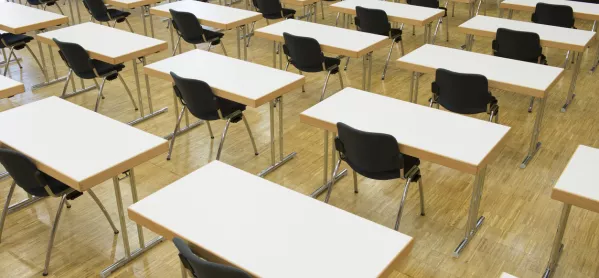A better-than-expected Ofsted grade can lead to lower GCSE scores for that school, research suggests.
The study, published by the University of Essex’s Institute for Social and Economic Research (ISER), reveals that good news about school ratings appears to lead to parents typically reducing the amount of help they give their child with homework – and this was reflected in children’s test scores.
Opinion: Ofsted might have a new framework, but the same old problems remain
Spielman: We won't penalise you for old results, says Ofsted chief
Need to know: Ofsted's new inspection framework
'Significantly lower test scores'
“For those students in schools inspected in the academic year when they are taking end-of-year exams, the provision of good news about school quality earlier in the academic year leads to significantly lower test scores in these high-stakes exams,” the report states.
The researchers, from the ISER, University of Sussex, University of Bristol, University College London and the Institute for Fiscal Studies, linked survey data already collected from UK households on how much time adults spend helping children with their homework to information about Ofsted inspection ratings and exam results.
GCSEs: Exam dates Find the key dates and exam timetables for the 2019 GCSEs
GCSEs: Results When is GCSE results day? Key information about exam reviews
The paper states that the impact of good news about Ofsted ratings on GCSEs may be due to parents subsequently spending less time on helping their teenage offspring.
Ofsted: surprising consequences?
“We find that when parents receive good news, they significantly decrease time investment into their children,” the report states: “This implies that for the average household, beliefs over school quality and parental inputs are substitutes. Hence the ability of public investment into school quality to raise test scores is mitigated because of offsetting responses of parents.”
But while there was a strong reaction from parents receiving good news, parents receiving bad news did not respond by significantly increasing their help at home. And receiving bad news had no significant impact on test scores, the study shows.
The researchers defined whether an Ofsted inspection judgement would be good or bad news by predicting what parents could expect based on publicly available information, such as the school’s previous Ofsted judgement and test scores, and then comparing that to the actual rating.





